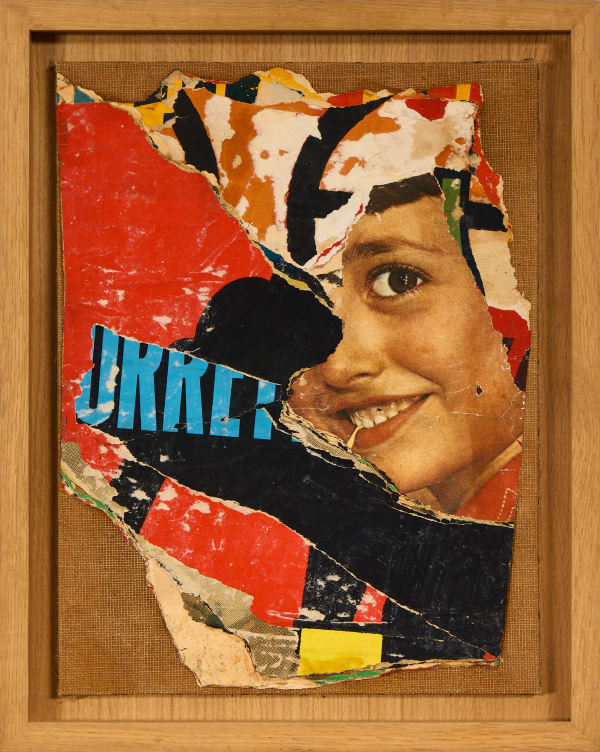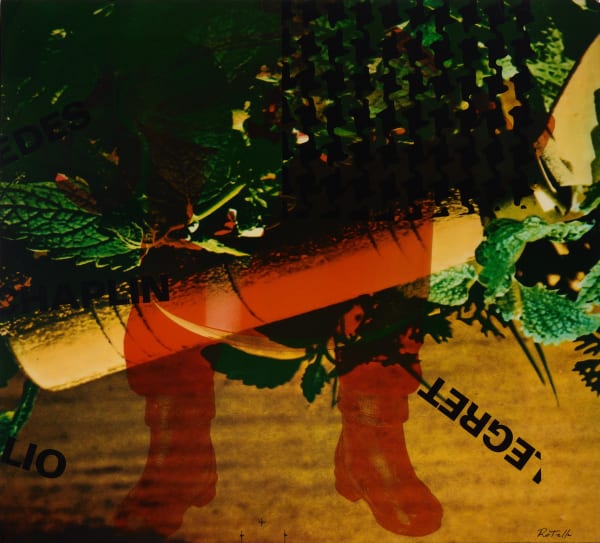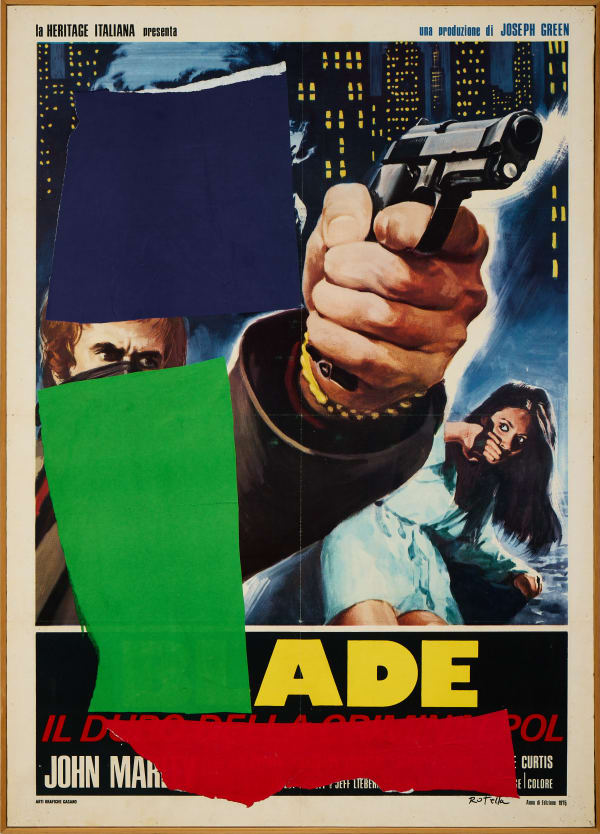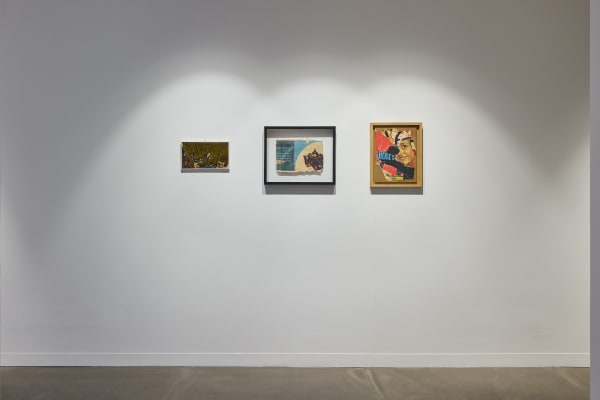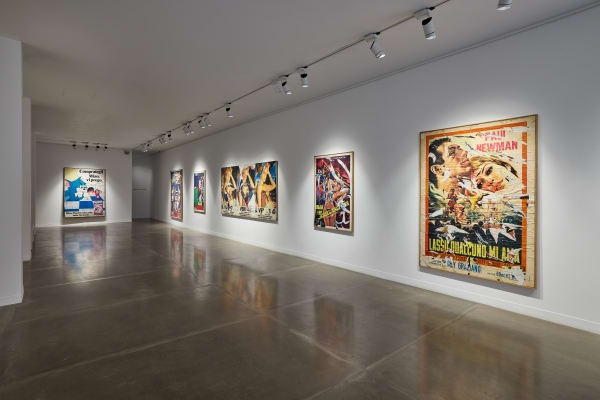Mimmo Rotella: The Urban Poet
"Mimmo Rotella is widely regarded as one of the most important post-war European artists. His décollage technique is the ideal illustration of the evolution of Italian art over time and acts as a vital expression of his times. The artist's strong sensibility enabled him to predict fundamental changes in artistic currents as well as in society, which he then manifested through this technique." - Inigo Lambertini, the Ambassador of Italy to the United Kingdom.
JD Malat Gallery is thrilled to announce Mimmo Rotella: The Urban Poet, a captivating solo exhibition by the Italian post-war artist Mimmo Rotella (1918 - 2006). This major retrospective brings together a vast array of never-before-seen works from the different periods of Rotella's practice. Created in collaboration with the Italian Embassy, the exhibition explores a variety of themes, from challenging the concept of traditional figurative art, to highlighting deconstruction and décollage as his primary artistic instrument.
Born in Catanzaro, Italy, Rotella is known for his elaborate and innovative décollage artworks made from torn advertising posters, as well as rethinking old film posters. From the very beginning of his career, Rotella was open to experimentation, moving from figuration to new-geometric paintings, and, eventually, to his signature décollage technique. In 1953 Rotella experienced his 'artistic crisis' which was followed by a "Zen illumination", his discovery of the advertising poster as an artistic expression of the city. The artist was originally inspired by the collage techniques of the cubists, adopting their approach, while simultaneously looking at a Dadaist array of their ready-made concept.
In Mimmo Rotella: the Urban Poet, Rotella invents a postmodern universe that takes the viewer on a rollercoaster time-travel ride through the various rapidly changing aesthetics of modern and contemporary pop culture. Ultimately, the show shares a deep interconnectedness with the film industry, while Rotella himself can be seen as Tarantino of the 20th century, vigorously exploring different mediums, extracting the pieces and putting them together to create a collection of new powerful works. Retro posters showcase the complexity of Rotella's ideas, while the bricolage aesthetics allows him to build his own narratives that reflect both the contemporary cultural aesthetics and his rendering of the past. Rotella champions a principle of past imitation and intertextuality, constructing his own visual vocabulary.
-
 Mimmo Rotella, Cosa fai baby, 1962
Mimmo Rotella, Cosa fai baby, 1962 -
 Mimmo Rotella, Curve e stati d’animo, 1954
Mimmo Rotella, Curve e stati d’animo, 1954 -
 Mimmo Rotella, Untitled, 1961
Mimmo Rotella, Untitled, 1961 -
 Mimmo Rotella, Il pistolero di Dio, 1970 – 1999
Mimmo Rotella, Il pistolero di Dio, 1970 – 1999 -
 Mimmo Rotella, Olio extra, 1966
Mimmo Rotella, Olio extra, 1966 -
 Mimmo Rotella, Le gret, 1973
Mimmo Rotella, Le gret, 1973 -
 Mimmo Rotella, Repulsione 2, 1996
Mimmo Rotella, Repulsione 2, 1996 -
 Mimmo Rotella, lo piaccio, 1990
Mimmo Rotella, lo piaccio, 1990 -
 Mimmo Rotella, Comprategli miao, 1990
Mimmo Rotella, Comprategli miao, 1990 -
 Mimmo Rotella, Lassù qualcuno mi ama, 2000
Mimmo Rotella, Lassù qualcuno mi ama, 2000 -
 Mimmo Rotella, Sexilandia, 1996
Mimmo Rotella, Sexilandia, 1996 -
 Mimmo Rotella, Vendo oro puro, 1991
Mimmo Rotella, Vendo oro puro, 1991 -
 Mimmo Rotella, Il re del rock (Elvis), 2003
Mimmo Rotella, Il re del rock (Elvis), 2003 -
 Mimmo Rotella, Sensual eruption, 2002
Mimmo Rotella, Sensual eruption, 2002 -
 Mimmo Rotella, Blade, 2005
Mimmo Rotella, Blade, 2005

